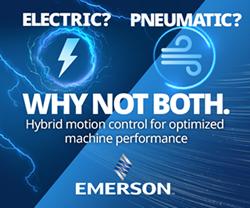Thanks to AR, every worker, regardless of language, physical capacity, or pure variability, has the ability to efficiently make the right decision over and over again.
Workforce Augmented Reality
Seth Patin | LogistiVIEW
This holiday season, the rapid growth between Thanksgiving Day and Cyber Monday will help e-commerce merchants attain the $150 billion sales level two weeks earlier this season than just two years ago, in 2017. Every day from November 1 through December 21 will exceed $1.5 billion in e-commerce sales. It is June 2019; there is still time for managers of warehouses, distribution centers (DCs), and 3PLs (third party logistics) firms to ensure this season workers will be faster, safer, and more accurate thanks to workforce Augmented Reality (AR).
AR technology ensures consistency, so an unskilled workforce can think and behave in the same way as those laborers with years of experience. Workforce technology is all about efficiency, consistency, repeatability, and safety, regardless of the person performing the task.
(1).jpg)
© 2019 LogistiVIEW
Thanks to AR, every worker, regardless of language, physical capacity, or pure variability, has the ability to efficiently make the right decision over and over again. The decision-making process ensures the worker is in the right place, picking the right object, and remains focused on the next step in the task sequence. In most operations, the information used to make these decisions is presented by a computer or trained through standard operating procedures (SOPs). While these decisions may only take seconds, with AR the probability of consistent picking, packing, and avoiding mispicks is dramatically increased.
Holiday worker effectiveness
There are many factors which impact workers’ effectiveness. The brain experiences fatigue, even from small decisions, over any long period of time. The brain struggles to make efficient and accurate decisions when too much information is available.
Without reinforcement, in just seconds the brain begins forgetting information in short-term memory. There is a continued quality diminution, a declining slope of memory recall during which the brain struggles to know whether something is accurate.
After 15 seconds, the brain forgets the information completely.
When the brain is pushed to work faster, information is forgotten at a faster rate along with mental fatigue. Since the brain recognizes and interprets graphical information significantly faster than text or spoken information, visual cueing is essential for accuracy. The brain's short-term memory forgets spoken information three times faster than visual information.
Approximately 30% of the brain is dedicated to sight; science estimates that between 80% and 90% of human sensory input is received through the eyes. Only 8% of the brain is used for touch and 2% is used for auditory processing.
How the Brain Processes Information
(1).png)
Worker fatigue translates to more errors later in a work shift. Minimizing instructions and task information with only critical information remaining, enables a worker to make decisions more efficiently and accurately. The probability of efficient and accurate information and instruction recall is improved by focus and reinforcement, well-supported with AR.
Systems that use text or voice as the primary method of instruction are working counter to the natural wiring of the brain, requiring the worker to train themselves to actively think like the computer system. This is the reason that many systems require extensive training. For inexperienced labor, coming on for seasonal work, starting this September, it is not too late to make the work more intuitive, making repetitive work decisions as simple as a stop light.
(1).jpg)
© 2019 LogistiVIEW
Visual Input Enabled Wearable (VIEW) technology improves workforce productivity
Visual Input Enabled Wearable (VIEW) technology improves workforce productivity and job satisfaction by making processes hands free and eyes focused. Intuitive voice and visual instructions make work easy and training rapid. LogistiVIEW’s Connected Worker Platform is built on VIEW technology and combines Computer Vision, AR, Artificial Intelligence (AI), and smart glasses.
The training time for under-skilled labor is just a few minutes. Using computer vision to identify relevant objects in workers’ field of vision, the technology literally shows a worker where to focus and provide information about the surroundings, simplifying decision-making and reinforcing the right fulfillment decision. This AR process intelligently reviews all information it collects, both relevant and irrelevant, thereby reducing the complexity of data collection and simplifying the work process. Workforce Augmented Reality can be gained on both handheld and wearable devices; when wearable smart glasses are introduced, the benefits are amplified. With smart glasses, the graphical instruction is constantly visible to the worker keeping hands free to interact with the task.
The cost of mispicks is extreme. When given the chance to focus on tasks, intuitively understand instructions, and simplistically execute order fulfillment, Workforce Augmented Reality is the key to reducing training time, managing fatigue, reducing error rates, and improving decision efficiency.
 About Seth Patin
About Seth Patin
Seth Patin is the Founder and CEO of LogistiVIEW, a software company that uses artificial intelligence and augmented reality on industrial smart glasses to improve the productivity and job satisfaction of task-oriented workers. Since starting his career at supply chain software vendor, RedPrairie (now JDA), over 15 years ago, Seth has worked in several roles as a technology vendor, customer, and consultant, eventually founding Accelogix, a consulting firm that delivers logistics technology solutions for mid-sized and large enterprise, in 2012. Seth’s experience in logistics and his vision for a better approach to human/computer interaction led him to found LogistiVIEW in 2014 and lead the company to become a pioneer and leader in the development of connected workforce technology.
The content & opinions in this article are the author’s and do not necessarily represent the views of ManufacturingTomorrow
Comments (0)
This post does not have any comments. Be the first to leave a comment below.
Featured Product

